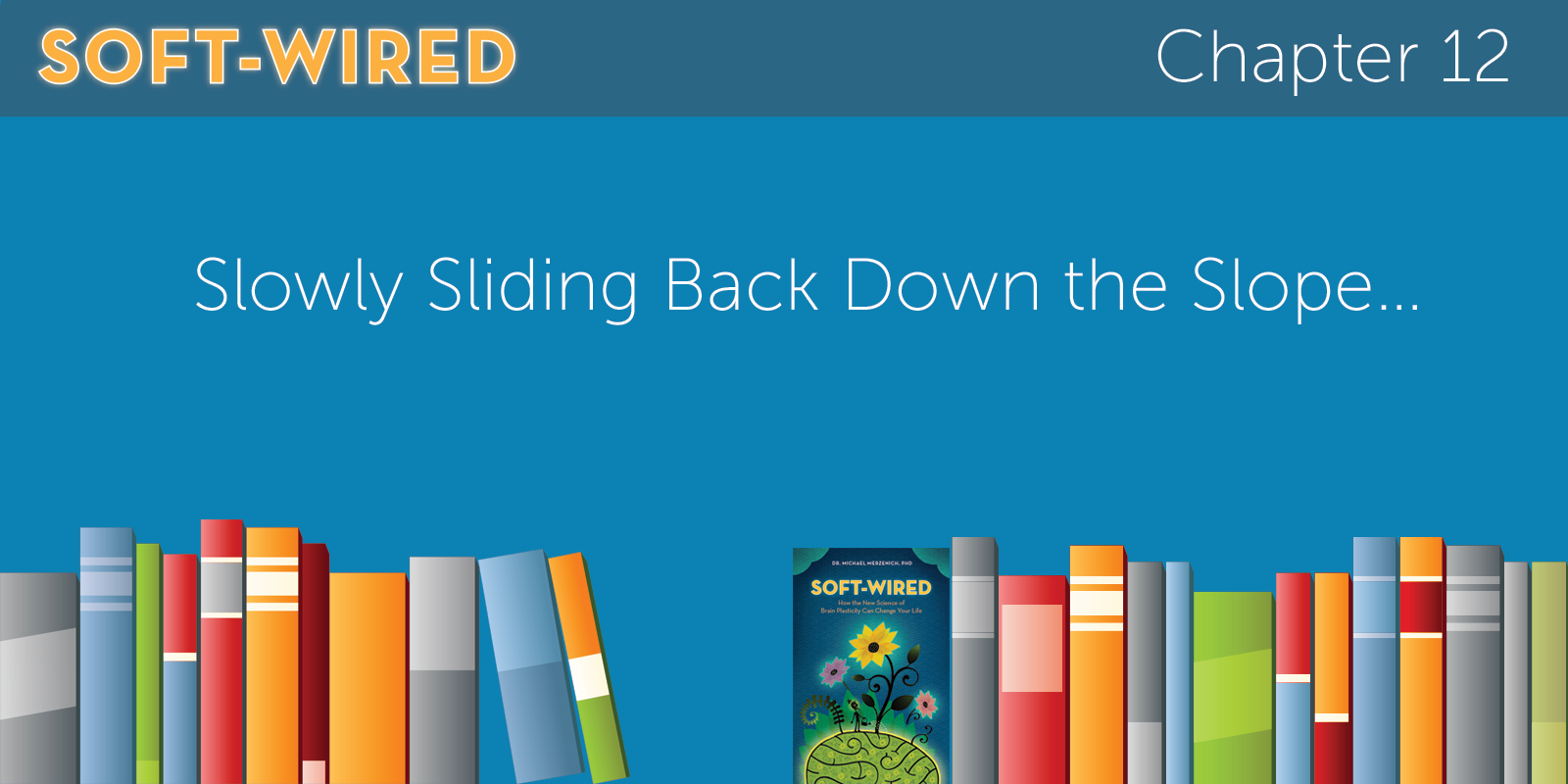Slowly Sliding Back Down the Slope…
Aging – and other sources of decline in our cognitive abilities – that can degrade the quality of our operation capabilities and imperil our older lives.
We shall later describe changes with aging in greater detail. I cited references that would lead you to a number of broad population studies tracking a variety of human abilities that decline with age past your 30’s or 40’s (e.g., papers by Tim Salthouse) in the last Chapter. They are among a growing number of studies that track the roughly 1/3 standard-deviation decline per decade in ability after ability from that age, forward to the end of life.
Changes in an egocentric direction as a function of age have been recorded by many observers, but I have not read a good book about the many astounding varieties of aging marked by a progressive narrowing of interests, outlook, adaptability, understanding, et alia—although tales about the mostly older eccentric folks amongst us abound in literature, because these true stories of human distortion and frailty are so obviously a compelling and often pathetic aspect of our humanity. We have all met a dozen or two individuals who could come alive in this Chapter (there are millions of them out there), but most scholars and journalists who consider issues of aging (esp. self-help books, which abound) seem to be naturally inclined to cheerfully avoid this subject. For an entry into the scientific literature related to changes in personality with aging, see, e.g., van Alphen SP et al (2012) Features and challenges of personality disorders in late life. Aging Ment Health 16:805. For an entry into a rather extensive literature on hoarding and aging, see Maier T (2004) On phenomenology and classification of hoarding: a review. Acta Psychiatr Scand 110:323. Of course at the end stages of senility, patients can be largely left with a shell of egocentric primitives. See Martinelli P (2012) The influence of normal aging and Alzheimer’s Disease in autobiographical memory highly related to the self. Neuropsychol 12 (epub ahead of print).
Almost every study of age-related decline describes a growing increase in the variance in performance abilities as a function of age, especially from the 4th or 5th decade, onwards. We have conducted many studies in the evaluation of our training programs in which we assess initial capabilities at the task in hand, for different age cohorts. Variance in performance grows as a function of age past roughly your 30th birthday; in >70 year-olds there is almost always a very great range of performance for subjects defined as “normal.” Some older individuals have performance capabilities that are comparable with those of young adults; others are dramatically less capable. With training, ALL are improvable.
One of my favorite treatments of the substantial ADVANTAGES of being older has been provided for us by the late Gene Cohen (2005) The Mature Brain: The Positive Power of the Aging Brain, Basic Books, Cambridge.






